Make a T-Shirt Quilt
Making a T-shirt quilt is easier than you think. Have you been saving all of your shirts? Do you have a pile of garments that you don’t know what to do with but you really want to save? Make a T-shirt quilt! Check out the step-by-step article and don’t forget to watch the video at the end! Let’s make a T-shirt quilt!
Gather your garments
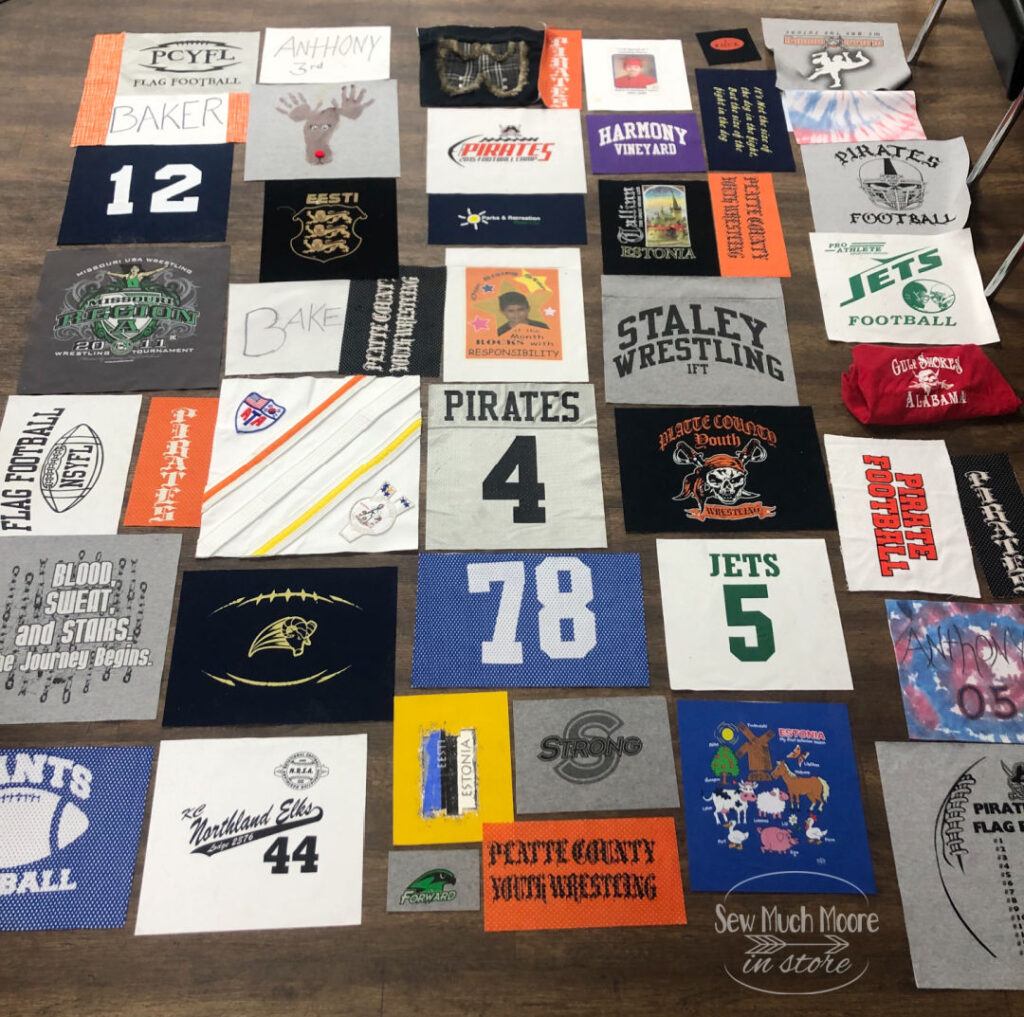
You might be wondering what kind of garments or materials that you can use for a T-shirt quilt. Obviously, you’ll want to use T-shirts. You can also use sports jerseys, hoodies or sweatshirts. Regular button down shirts or even baby clothes. You’ll find all sorts of things that you can use and I’m sure you’ve saved a ton of it. Gather those up and make sure they are laundered. I would recommend skipping the fabric softener as it makes it a little more difficult to fuse interface to softened fabrics.
Choose your T-Shirt Quilt Design
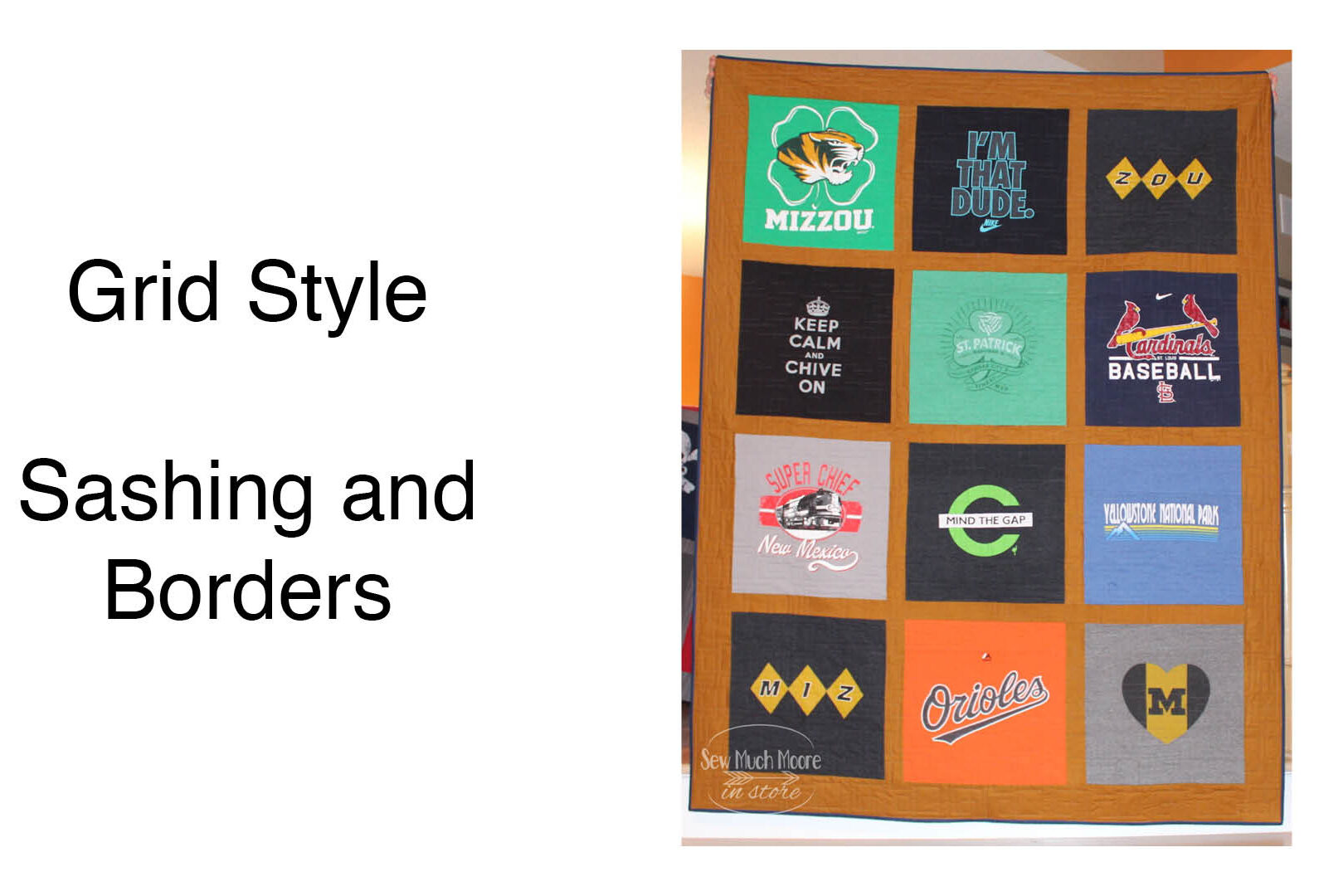
The next thing to consider is how you want to design your quilt. There are several options out there. One of the most popular is the grid quilt. That’s just squares made out of your various materials or T-shirts. You could have these made with sashing. Sashing is the fabric in between the shirts to separate the blocks. You can even add a border around everything, which is the fabric around the perimeter of your quilt.
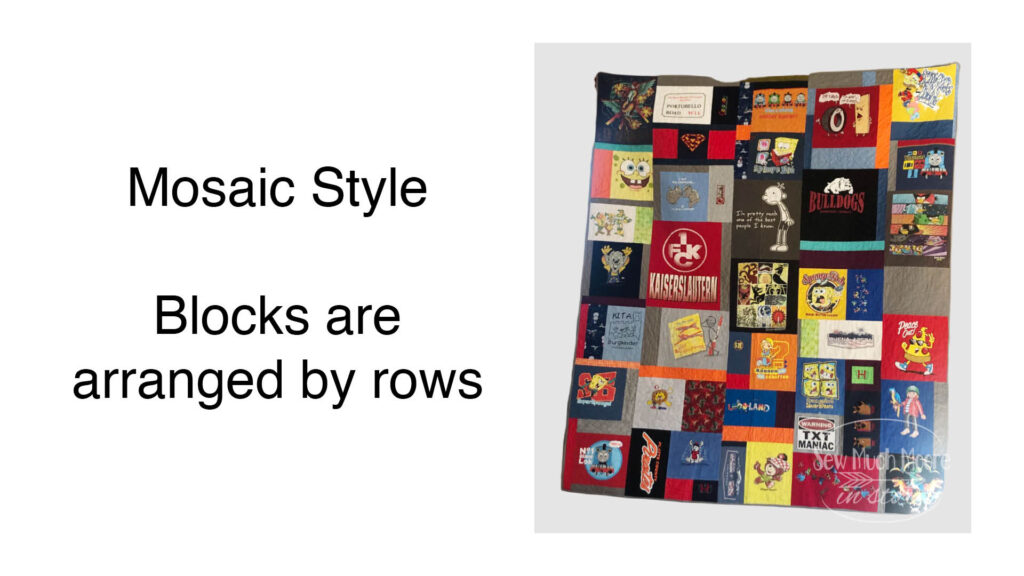
Another design option is a mosaic quilt. A Mosaic quilt has a variation of block sizes put together. Then the blocks are justified and sewn into vertical rows. Have fun designing your quilt with the materials you have!
Tools and Supplies
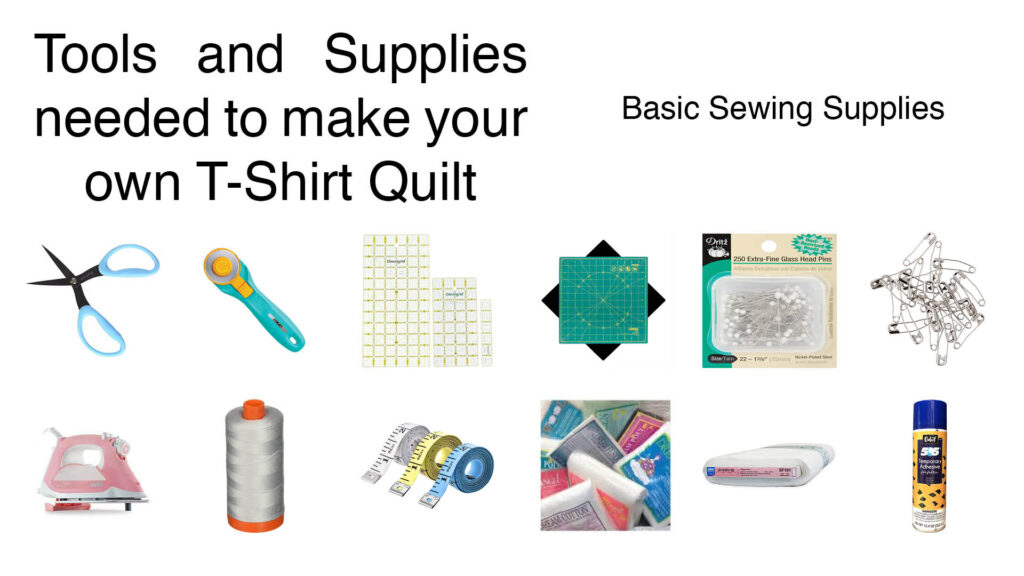
You might think you need a lot of fancy equipment and supplies to make a T-shirt quilt but you really don’t. I use my Juki TL 2010 Q and it works wonders. Before I had my Juki, are used a hand me down 30 or old Kenmore. Click this link if you’re looking for a full list of tools supplies and materials to make your own T-shirt quilt.
Cut & Prep Materials
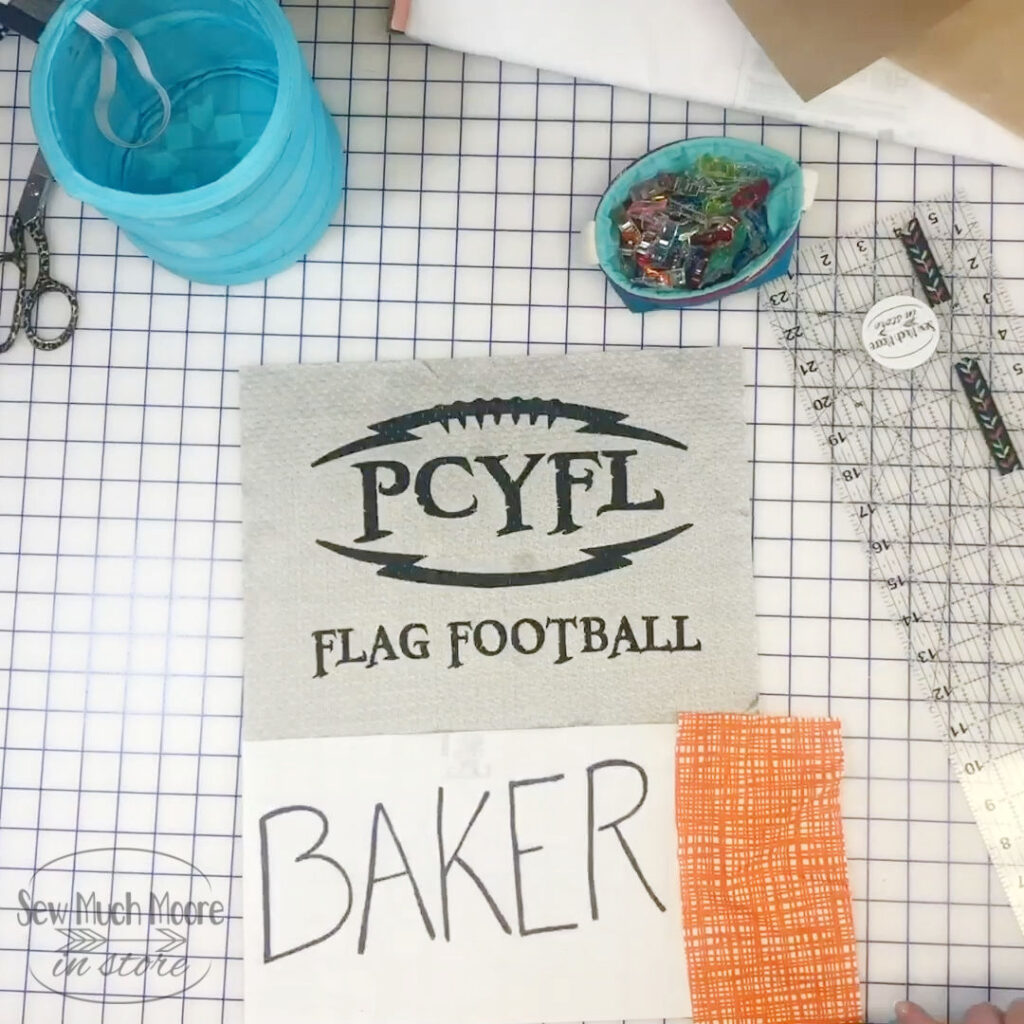
This is the fun part! Turning those shirts and materials into quilt blocks! There’s a variety of ways that you can do this. The simplest way is to just interface a shirt and cut it to the size of your design. Sometimes a T-shirt doesn’t have a centered logo and you can certainly do that by cutting your shirt apart and sewing it back together in just the right manner. Other times you can combine garments to make a single block. Another fun way to use your garments is to sew other materials like quilting cotton to blocks to make them the size you need. Have fun using the garments you have and find creative ways to fit them into your overall quilt design!
Assemble the Quilt Top
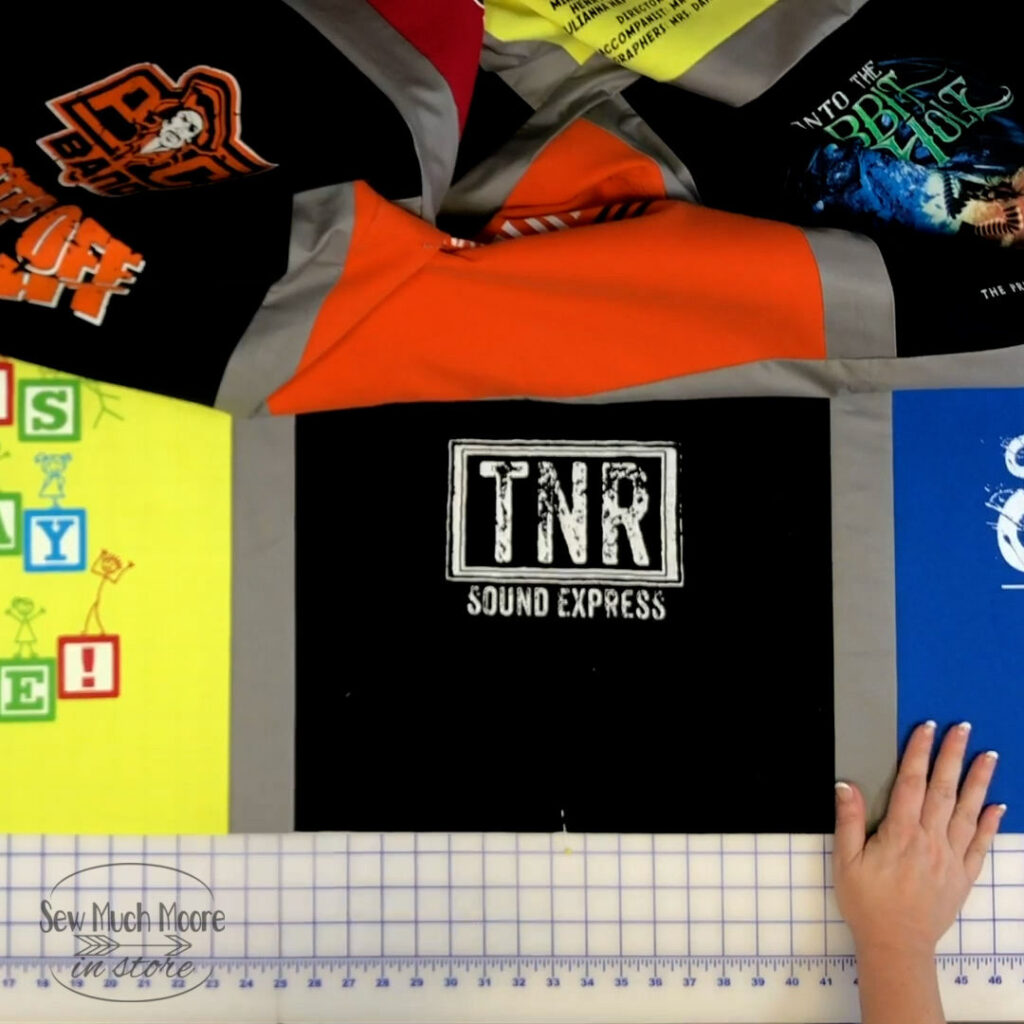
Adding vertical sashing to your quilt is a great way to showcase your quilt blocks and it also helps to enlarge the overall size of your quilt. There is some “Quilty math” involved because you have to make all of your blocks fit together. We cover all the “Quilty math” in my T-Shirt Quilt Academy online sewing course. If you’re going to add vertical sashing, you might as well add horizontal Sashing as well. This makes for a very nice design on your overall quilt.
If you’re looking to make your quilt top larger, or you just want to finish it off around the edge, consider adding a border to your T-shirt quilt. The wider the border strip, the larger your overall quilt will become. It’s a good idea to do all of that “quilty math” ahead of time (in the design process).
Making your Quilt backing
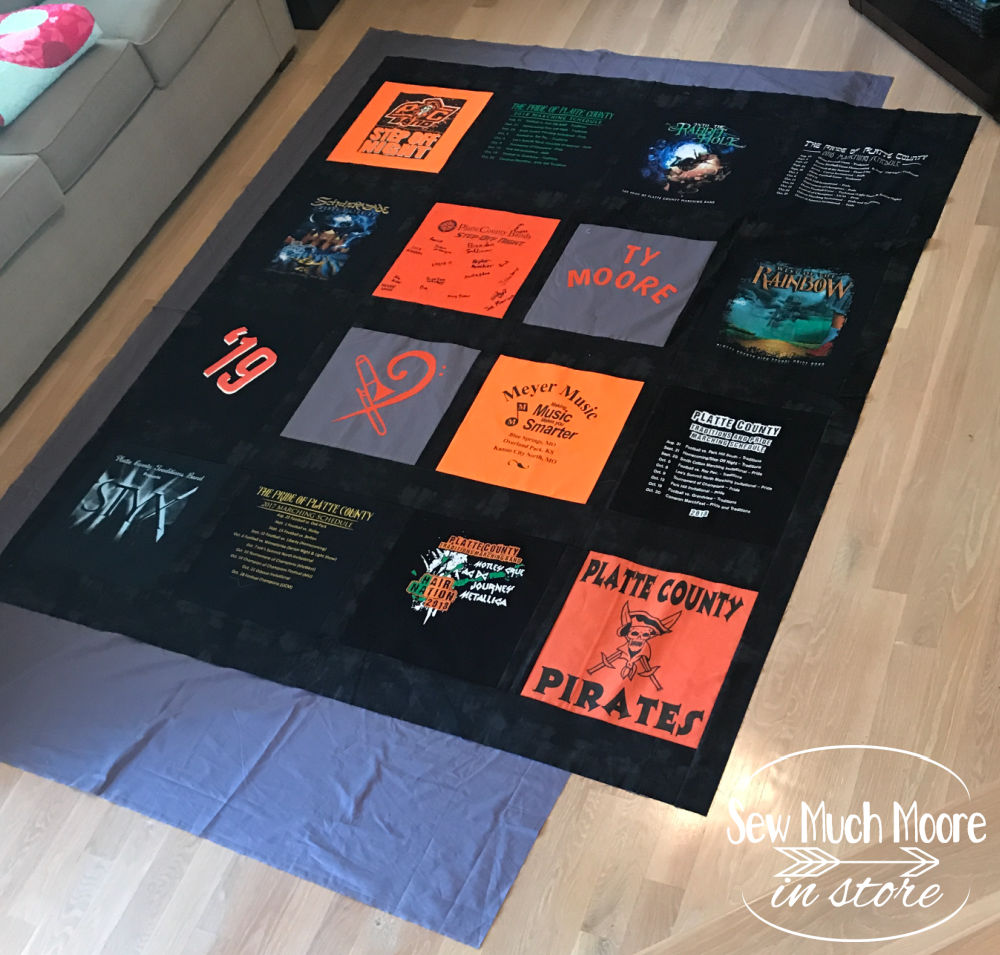
Once you finish your quilt top, you need to create a backing fabric. Measure your finished quilt-top and do your “Quilty math” to determine the correct size of your backing. Once you determine the size of your backing, you can decide if you want to either piece your backing or use a wide back fabric. There are several options to making your backing, but the most common is to piece your backing fabric.
Choose your Batting
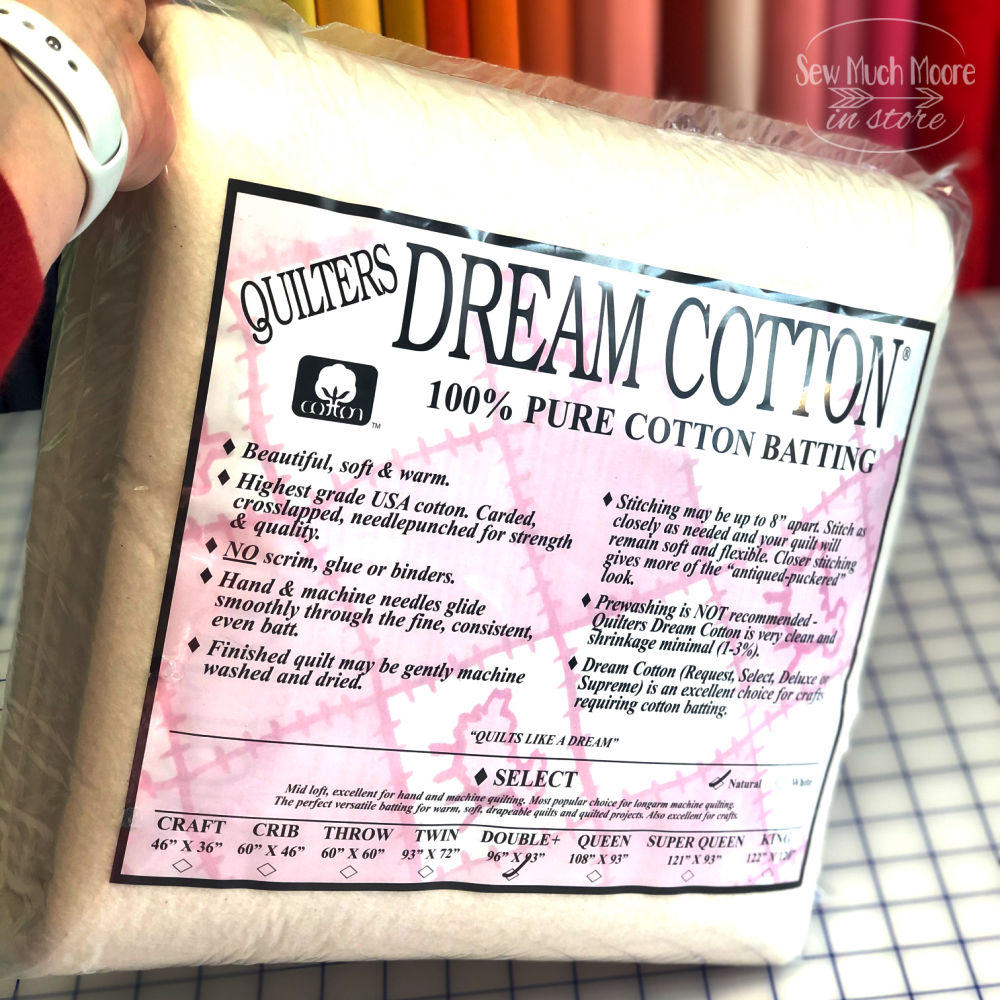
Just when you think all of the quilt decisions have been made, you need to consider the batting. Do you like a thick, heavy quilt or do you like a lighter quilt? Is this T-shirt quilt going to be used all year or just in certain seasons. Consider the recipient of the T-shirt quilt to know if they sleep hot or if they require lots and lots of warmth while they sleep. Choosing the right batting is going to make a difference in your finished quilt.
Quilting your T-Shirt Quilt
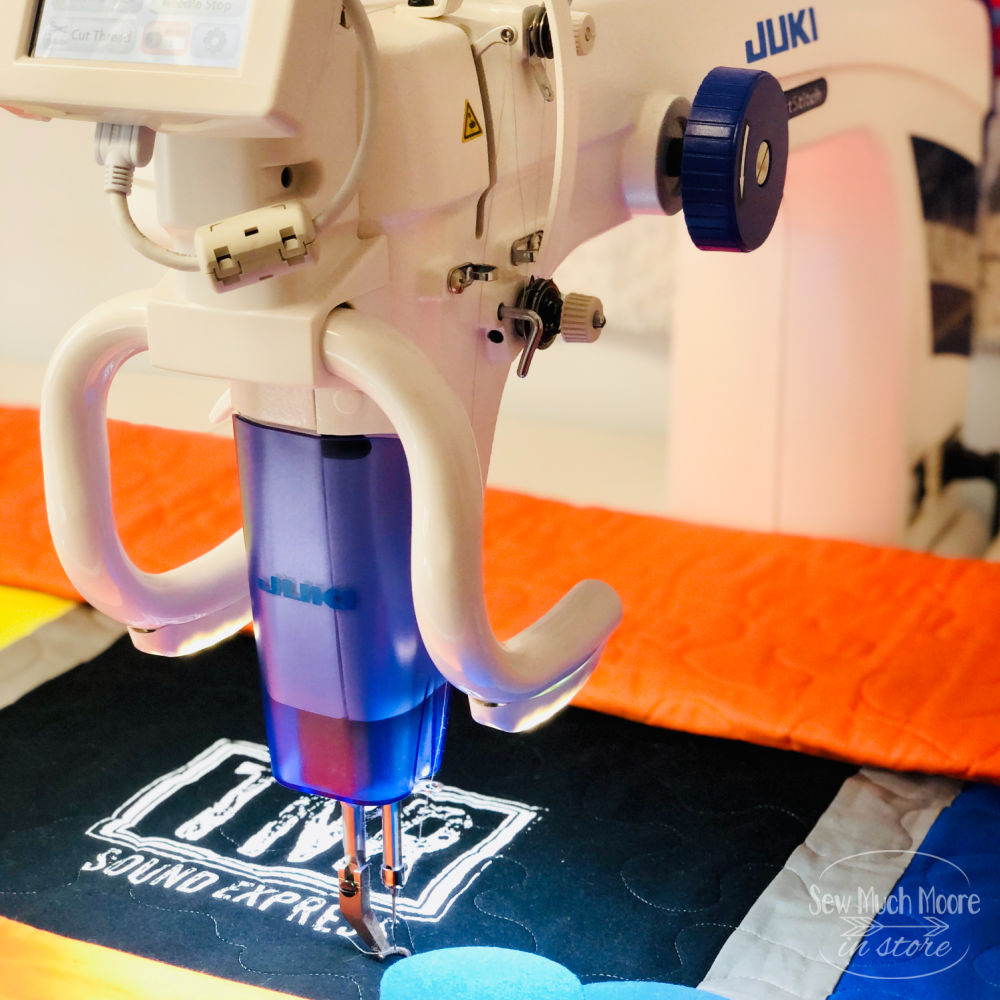
You can either send your quilt to your favorite long armer, or you can quilt your own quilt. If you’re choosing to quilt your own quilt, then you will need to based your quilt. Whether you choose to spray baste your quilt (with a spray adhesive) or if you prefer to use safety pins for basting, either way both steps help you to prepare for your next step. Quilting! One of the simplest ways to quilt is a free motion meandering design. Choose a quilting method that you’re most comfortable with and enjoy the process. I love using my Juki J-350 to finish my quilts! Learn more about my Long Arm Quilting machine right HERE.
Binding your T-Shirt Quilt
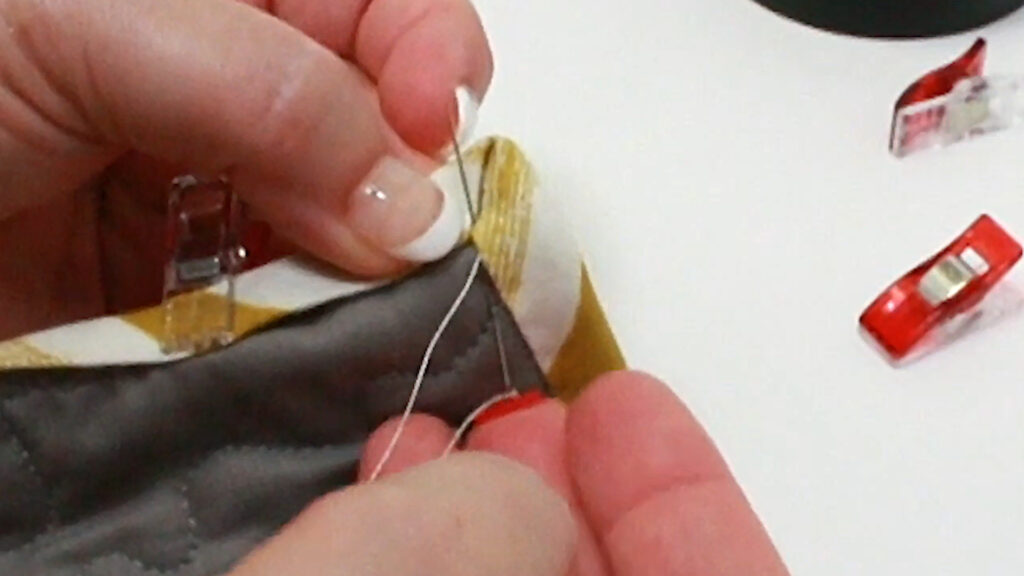
The last thing to do is bind your quilt. Once you trim your quilt, then you’ll measure your quilt again. Using more of your quilting math, will determine how much binding to cut and make. Once you make an attach your binding, you can either do the hand binding method which is very beautiful and rewarding, or you can choose to do the machine binding which works wonderfully as well. Once you’re finished your binding, then your T-shirt quilt is finished!
Watch a quick video
Let’s make a T-Shirt Quilt!
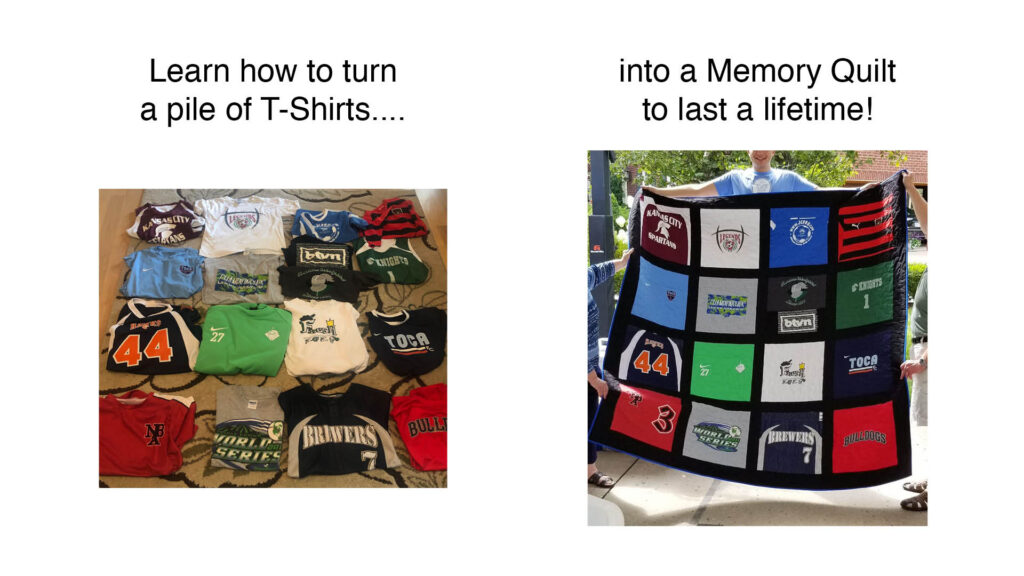
I’ve been making T-shirt quilts for years and years and I always get asked questions about how to make these. I’m so excited to finally offer an online sewing course so you can make your own T-shirt quilts too!
Get signed up for T-shirt Quilt Academy!
Custom T-shirt Quilts
If you would rather just send me your shirts, I can make a Quilt for you! Learn more in my Shop!
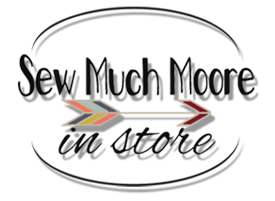
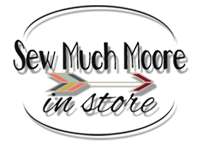
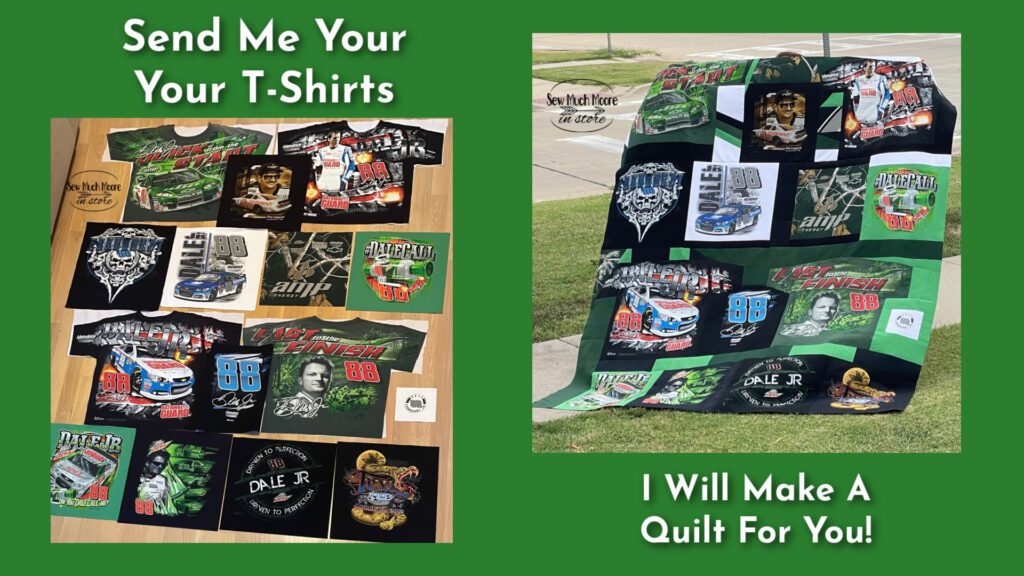
What is the best batting to use for a lighter T-Shirt quilt?
Great question, Jennifer! I like to use Quilter’s Dream Request or Select for lighter weight quilts. This is a 100% cotton batting that drapes nicely.
What do you do with tech fabrics, like a soccer or basketball jersey? Is there a way to incorporate them? Seems like the fusing either wouldn’t work or would scorch/melt the fabric.
Thanks for any suggestions!
These are great questions – I cover these in my online course. You can learn more right here: https://creativedayjob.com/t-shirt-quilt-academy-is-open/
Do you need to use a special/specific needle for t-shirt quilts, including the quilting?
These are great questions – I cover these in my online course. You can learn more right here: https://creativedayjob.com/t-shirt-quilt-academy-is-open/